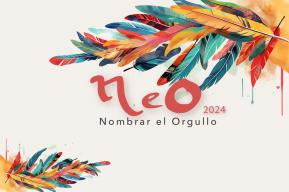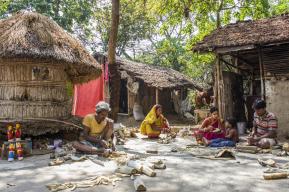Project
Groundwater Resources Governance in Transboundary Aquifers

Geographical Focus: Central Asia, Southern Africa, Latin America and the Caribbean
Dates of implementation: 2013-2022
Funding Partner: Swiss Agency for Development and Cooperation (SDC)
Pilot Aquifers and Regions
- Stampriet Transboundary Aquifer System in Africa
- Pretashkent Transboundary Aquifer System in Central Asia
- Ocotepeque-Citala Transboundary Aquifer System in Central America
Project Objective
The GGRETA project is unwavering in its commitment to enhancing the governance of shared groundwater resources across the three pilot regions. This is achieved through a transboundary cooperation and science-based multidisciplinary approach, ensuring that the management of these vital water resources is conducted in a sustainable and equitable manner.
Project Overview
The Governance of Groundwater Resources in Transboundary Aquifers (GGRETA) project, implemented by UNESCO’s Intergovernmental Hydrological Programme (IHP), represents a strategic initiative within the framework of the Swiss Agency for Development and Cooperation’s “Global Programme Water Initiatives (GPWI) – Water Diplomacy”. The project is instrumental in fostering regional stability, cooperation, and peace, through the establishment of cooperative frameworks for the governance of transboundary groundwater resources. It operates across diverse geographical locales, encompassing River Basin Organizations (RBOs), Regional Commissions (RCs), and selected aquifer systems in Africa, Central America, and Central Asia.
GGRETA is integrally aligned with UNESCO’s International Shared Aquifer Resource Management (ISARM) Initiative and the Transboundary Waters Assessment Programme (TWAP), addressing critical challenges associated with Transboundary Aquifers. The project is committed to augmenting the knowledge base on the physical and socio-economic characteristics of these vital water resources.
Phases of Implementation
- GGRETA 1 (2013-2015)
The initial phase of the GGRETA project was characterized by a concerted effort to unravel the complexities of groundwater dynamics within each pilot transboundary aquifer. The team, comprising of experts and scientists, embarked on a journey to amass a wealth of scientific knowledge, aiming to foster a comprehensive understanding of these unique aquatic systems. This foundational phase was pivotal, ensuring that all subsequent efforts were anchored in robust scientific insight and expertise.
- GGRETA 2 (2016-2018)
This transformative phase marked a paradigm shift, with the GGRETA project intensifying its focus on cross-border dialogue and collaborative governance. The development and refinement of shared management tools were at the forefront, creating an enabling environment for enhanced governance structures. This period was instrumental in laying the groundwork for the establishment of vital consultation and cooperation mechanisms, ultimately contributing to the fortification of transboundary groundwater governance.
- GGRETA 3 (2019-2022)
The culmination of the GGRETA project was realized in its third phase, a period underscored by a steadfast commitment to consolidating regional stability, cooperation, and peace. The team’s efforts were geared towards the establishment of comprehensive cooperative frameworks for transboundary groundwater governance. Capacity building was a hallmark of this phase, with extensive training provided to nearly 1400 experts and policymakers. Knowledge enhancement on groundwater and Transboundary Aquifers (TBAs) was significant, paralleled by a robust campaign to raise awareness across the regions. The formulation of policy instruments and the execution of workshops and sessions further solidified the foundations of groundwater governance. For an exhaustive account of the activities, achievements, and lessons gleaned during this phase, kindly refer to the Final Project Report of GGRETA Phase 3.









